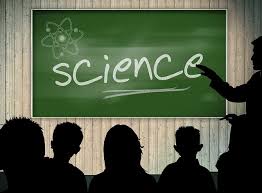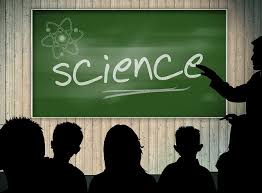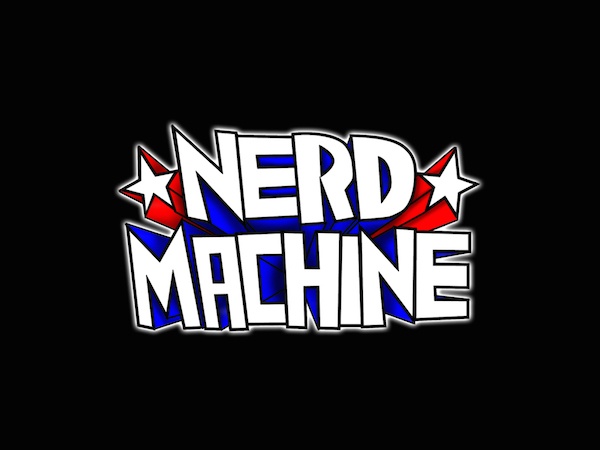The ACT has undergone some big changes recently, and one of the biggest is that, for many students, the Science section is now optional. With that added flexibility comes a new question: should you take the ACT Science section? In this article, we go over who the Science section is actually optional for, what to expect from the Science section, the one key factor to think about when making your decision, and other considerations that can help you make the best choice.
The Only Actual Science You Need to Know for ACT Science
While you may have been told you need zero science knowledge to answer any ACT Science questions, this is NOT true. There are typically around four questions per test that you cannot answer without previous background knowledge. That's the difference between a 31 and a 36 on the Science section!
In this article, I will give an overview of the 18 topics that will NOT be explained in the ACT Science passages that the ACT expects you to know. The ACT assumes you know these topics from school and science class. To gather this info, I dissected dozens of previous ACT Science test sections to find the concepts you have to know. As far as we can tell, we're the only ones who have taken the time to research this.
If you've gotten bad grades in science classes in school, this article will give you a refresher on the only concepts you need to know.
Out Now: The PrepScholar Guide to ACT Science Book!
Do you struggle with ACT Science? You’re not alone! Science is often the ACT section students feel least comfortable with because it’s so different from the science exams you take in school. Despite this, there are very few books specifically dedicated to ACT Science. At PrepScholar, we decided to use our expert ACT knowledge to fix that.
The 3 Types of ACT Science Passages: What You Must Know
The ACT Science section is one of the bigger mysteries to students since it is the most different from the SAT, PSAT, and other tests you have taken. Here, I will try to unravel the mystery by explaining the types of passages on the ACT, as well as the unique question types for each of these passages.
By the end of this article, you will have a clear understanding of what the ACT Science section entails and how to best prepare for it.
How to Improve ACT Science Scores: 7 Tips From a Perfect Scorer
Are you struggling with ACT Science scores between 14-24? You're not alone - hundreds of thousands of other students are scoring in this range. But many don't know the best ways to break out of this score range and get 26+ on the ACT.
Here we'll discuss how to improve your ACT Science score effectively and why it's so important to do so. Put these principles to work and I'm confident you'll be able to improve your score.
The Ultimate Study Guide for ACT Science: Tips, Practice, and Strategies
We've written the best ACT Science guide available anywhere. This is not an exaggeration—we've studied dozens of ACT prep books and online resources, both paid and free, and we believe this is the best resource available right now, by far.
In this guide, we cover every question type on the ACT Science section and give you strategies to attack them. In addition, we provide you with our best ACT Science tips and teach you how to get the most out of your ACT Science practice and ACT prep.
If you're serious about raising your ACT Science score, read through every link. By mastering all the key concepts, engaging with realistic practice questions, and reviewing your mistakes, you'll dramatically improve your ACT Science score.
Time Management Tips and Section Strategy on ACT Science
Most students struggle with the timing of the ACT Science. I really struggled with it when I was a high school student. With only 52.5 seconds to answer each question or five minutes per passage, you have no time to waste.
I improved my ACT science score by five points between my first official test and my second. Did I learn more science between the first and second test? No, but I did practice certain time management tips and ACT Science strategies specific to the section. In this article, I'll show you the lessons I learned so you can finish the section with time to spare.
The ACT Science is like a double rainbow: unique, complicated to understand, and people freak out when they see it. Unlike a double rainbow, which tends to freak people out because of its awesomeness, the ACT Science section tends to freak people out because of the crazy time crunch with only 35 minutes to answer 40 questions.
Even so, if you want to do well on the ACT Science, you can't avoid it. You have to buckle down and create a great study plan. The good news is there are several easy steps to take to make sure you are studying for the ACT Science section in the right way.
Here is an overview of what this guide covers:
- Which study materials to use
- The importance of using realistic timing
- How you should be reviewing your practice tests
- Memorizing what the ACT Science expects you to know
ACT Science Practice Tests: What to Use and What to Avoid
Whichever way you choose to prepare for ACT Science — whether with a private tutor, class, online program or on your own — you need to make sure you are using high-quality practice ACT Science tests. Because ACT Science is unique, any old science study material won't cut it. To learn about how different ACT Science is from any other science test, read the big secret of ACT Science.
In this guide, I'll tell you where to find all of the official ACT Science practice tests available: several are free! Also, I'll provide tips on how to use these ACT Science practice tests improve your score.
Additionally, I'll talk about some of the ACT Science practice materials you should avoid and why you shouldn't use them. I draw my conclusions from my years of experience tutoring students for ACT Science and from my own practice for the ACT Science test.
How to Get 36 on ACT Science: 13 Strategies From a Perfect Scorer
Are you scoring between 26-34 on ACT Science? Do you want to raise that score as high as possible - to a perfect 36?
Getting to a 36 ACT Science score isn't easy. It'll require perfection. But with hard work and my strategies below, you'll be able to do it. I've consistently scored 36 on Science on my real ACTs, and I know what it takes. Follow my advice, and you'll get a perfect score - or very close.
The ACT Science section, more than any other, is about strategy over knowledge. Because every graduating high school senior has a varied level of science education, the only way to make a "fair" or "standardized" test is to test very basic concepts. If the ACT Science tested basic concepts in an easy way everyone would get a 36, so instead, the ACT tests these basic concepts in new and confusing ways.
In order to get the best score, you need to use a strategy to attack this strange test and practice the strategy on several ACT Science practice tests. For information about practice tests, check out our other article. You only have 35 minutes to answer 40 questions (or 52.5 seconds per question) and each question has the same point value, so you also need a strategy that helps you answer as many questions as possible in the shortest amount of time.
Like most ACT Science questions, Interpreting Experiments don’t require you to understand the hard science behind the experiments. Instead, these Interpreting Experiments questions will give one interpretation of part of the passage and ask you whether that interpretation is true or not, using the data from the experiment. These questions have a predictable pattern to the question and answers, which you can use to your advantage.
In this article, I'll cover the general format of Interpreting Experiments Questions, solve several ACT Science practice questions, and provide ACT Science tips to answer these questions.
Many students struggle with ACT Science. Students, who came to me for tutoring after taking their first official ACT test, typically performed worst on this section. It is very fast and unlike any other science test. This section more than any other is about pacing and strategy. I was able to boost my ACT Science score 5 points with a few tips. So, what simple tips and tricks can you use to boost your ACT Science score right now?
Every day you have a plan: whether it’s going to school or the movies. You make plans if you don’t already have a plan. Scientists / Researchers are major planners and control-freaks (get it science nerds?).
The ACT Science section asks you to figure out what that plan was and how it could hypothetically change. These two types of questions are typically found in Research Summaries Passages.
Interpreting Trends in ACT Science: Relationships Between Data Points
Interpreting trend questions can sometimes feel like looking into a crystal ball and predicting the future. Thankfully, no psychic powers are necessary to answer these questions. These questions do require you to interpret the data you are given, going beyond the basic factual questions. Interpreting Trends questions only appear in Data Representation and Research Summaries Passages. For more information about these types of passages and the other types of questions, check out the 3 types of ACT Science passages.























